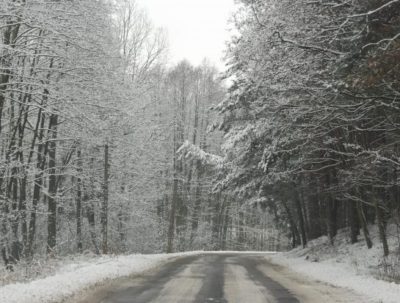How Cold Temperatures Make Driving More Dangerous
 It’s no secret that driving in icy and snowy conditions is hazardous. That’s why every driver in Nebraska will want to pack the right supplies for winter driving. There are also effective techniques that make it easier to drive in harsh winter weather.
It’s no secret that driving in icy and snowy conditions is hazardous. That’s why every driver in Nebraska will want to pack the right supplies for winter driving. There are also effective techniques that make it easier to drive in harsh winter weather.
In addition to making driving a lot more difficult, cold weather also has adverse effects on your car and the way it functions. Automobiles require additional care and maintenance during the cold months to prevent problems that could cause an accident or leave you stranded out in the cold.
Nebraska has severely cold winters, with an average daytime temperature that’s barely above 30 degrees Fahrenheit. This can affect your car or truck in several ways. In fact, a vehicle’s tires, engine, battery, and windshield wipers are all negatively impacted by extreme cold.
How Cold Weather Affects Your Tires
Tires keep your vehicle connected to the road. Maintaining peak tire performance is extremely important for your safety. It’s essential to follow the manufacturer’s recommendations for optimal pressure that’s written on the tires and available on a sticker inside the driver’s side door. You can also look this information up on Google.
Cold weather can make tire pressure drop dramatically. A ten-degree drop may cause a loss of up to two pounds per square inch.
Underinflated tires lose their shape, creating too much friction with the road. This reduces stability, control, and grip, especially if the tires are already worn down at all.
Use a tire gauge to check your tire pressure regularly during the winter months to prevent sliding and blowouts. And be sure to replace tires that are worn down or have uneven tread.
Cold Weather and Engine Performance
Extreme cold causes the fluids in your car to become thicker and slow-moving. Oil, wiper fluid, and antifreeze are all vulnerable to extreme cold.
Oil has difficulty circulating when it’s cold, and this puts pressure on the oil pump, making the vehicle sluggish and more difficult to start.
Water vapor in fuel lines can also hurt performance and even cause your engine to suddenly stop working.
Take the following steps to protect your engine in extremely cold weather:
- Start your engine every day.
- Get regular oil changes.
- Use fully synthetic oil.
- Check antifreeze regularly.
- Keep your gas tank at least half full.
- Use a block heater to warm your engine.
- Allow your engine to run a few minutes before you begin driving.
Protecting Your Battery and Windshield Wipers
Lower temperatures make it more difficult for a battery to give off a charge needed to start the vehicle. Get your battery tested before winter starts and replace it if necessary. Even for new batteries, a battery warmer can improve effectiveness and protect it from cold Nebraska winters.
When your windshield is covered with ice, it can prevent your wipers from functioning properly. But there ways to solve this problem:
- Engage windshield defroster before you begin driving.
- Install a heated windshield washer fluid system.
- Use specially formulated de-icer windshield fluid.
- Install heated wiper blades.
- Apply a solution containing one third water and two thirds rubbing alcohol to windshield using a soft cloth.
Were You Harmed by an Unsafe Driver?
Taking the right precautions will help you stay safe when driving during the winter months. But careless drivers can still cause accidents that harm you and your loved ones.
If you’ve suffered injuries due to someone else’s negligent behavior, contact the experienced personal injury attorneys at Bottlinger Law, L.L.C. today by calling (402) 505-8234.
We offer a FREE consultation, and you won’t owe us anything unless we win your case.
Bottlinger Law
Consultation Form
Our legal team is ready to help. Please fill out the form below to set up a free consultation with the Bottlinger Law team.